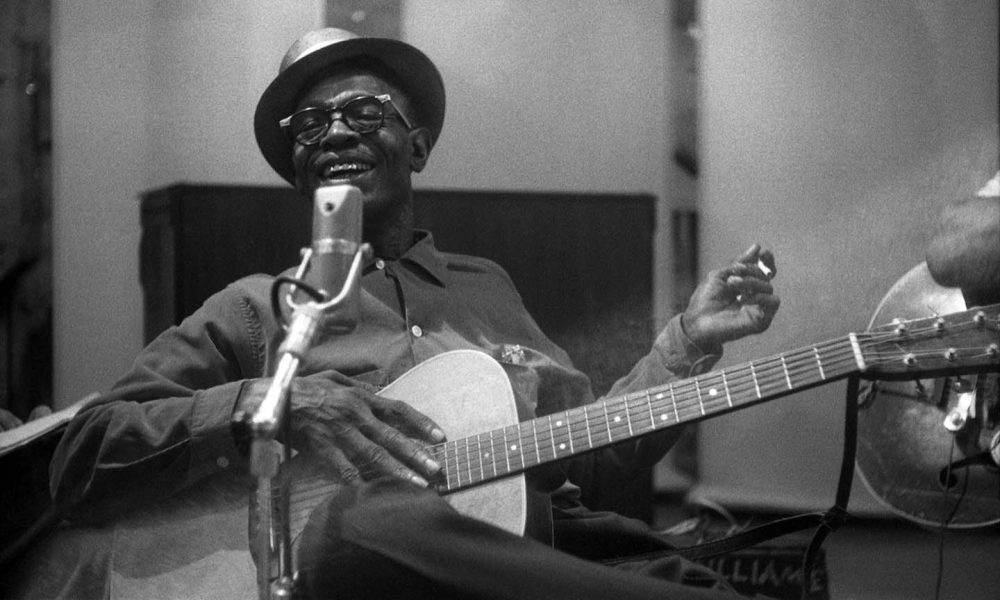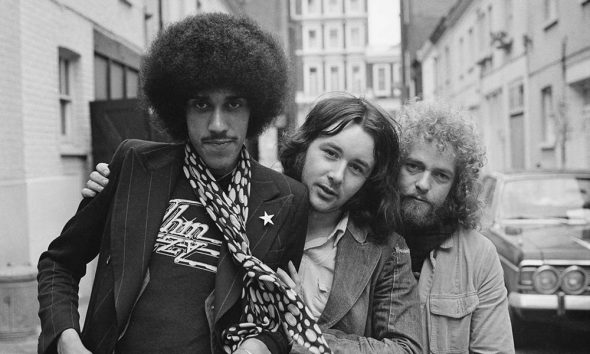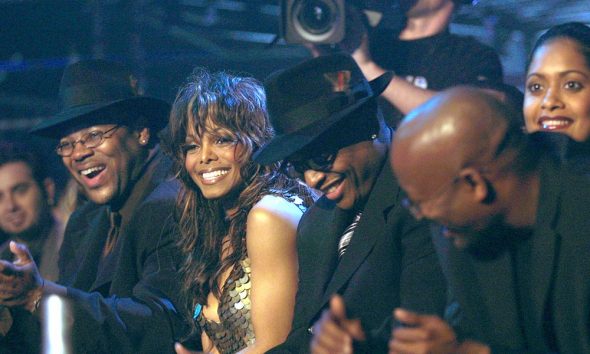The Legacy Of Lightnin’ Hopkins: The Texas Troubadour
Lightnin’ Hopkins spent his life playing a special brand of country blues, gaining popularity in America and Europe.

Texas bluesman Lightnin’ Hopkins career was both long and fruitful. He performed live for six decades and recorded for over 30 years, amassing a catalogue that was larger than almost any of his contemporaries. Not only was he prolific, but he was also a great raconteur and a very good live performer with an act honed to perfection at pre-war dances and parties.
Born Sam Hopkins on March 15, 1912, his father was a musician who died when Sam was very young. The family moved to Leona in Texas where he grew up; in 1920 he watched Blind Lemon Jefferson at a picnic in Buffalo, Texas, which inspired him to make a “cigar box” guitar. His older brother Joel taught him to play the homemade guitar before his mother, Frances, encouraged him to play organ at her home church services. However, he was drawn to the music played by his older brothers Joel and John Henry. He soon dropped out of school and started work on a plantation. “I did a little plowin’ – not too much, chopped a li’l cotton, pulled a li’l corn. I did a little of it all.” He, like many other bluesmen, began playing at picnics and dances at local farms on a Friday and Saturday night; later he took to hoboing throughout Texas.
Listen to the Best Of Lightnin’ Hopkins on Apple Music and Spotify.
By the end of the 1920’s he formed a partnership with his cousin, Texas Alexander, and the two of them played on street corners for tips. Their partnership continued until the mid 1930’s when Hopkins was sent to Houston County Prison Farm, for some unknown offense. After his release, he rejoined Alexander working at picnics, parties, and juke joints, as well as working outside of music. He would travel around Texas, often on buses, where the drivers would even let him ride for free as long as he played for the passengers.
In 1946, Hopkins and Alexander were given the chance to record by an Aladdin Record’s talent scout, inexplicably only Hopkins followed up the offer when Lightnin’ made the trip out west to Los Angeles on November 4, 1946. He cut “Katie Mae Blues,” with pianist Wilson “Thunder” Smith; they were billed as Thunder and Lightnin’. It was a hit in the Southwest, so Aladdin got him back into the studio a year later and he recorded “Short Haired Women,” which sold around 40,000 copies. In 1948 he sold over twice that many records with his recording of “Baby Please Don’t Go,” almost all of them around the Houston area and his home state.
At the same time as recording for Aladdin, he cut records for Goldstar in Houston. Sometimes it was the same songs. In fact, he would go on to make records for over twenty different labels during his long recording career. If he was not the most prolific blues recording artist, his discography was certainly the most complex to unravel. He made the R&B charts in 1949 with “Tim Moore’s Farm”; over the course of the next three years he had four more hits, the biggest was “Shotgun Express,” which made No.5.
Hopkins took a hiatus from recording between 1954 and 1959, although he did make a couple of records in 1956. With the rise and rise of Chess Records’ electric blues, Hopkins seemed old-fashioned. In 1959 he was “rediscovered” by folklorist Mack McCormick and his career was revived when Sam Charters recorded him for The Folkways label. According to McCormick, “He is in the finest sense of the word – a minstrel: a street-singing, improvising songmaker born to the vast tradition of the blues. His music is as personal as a hushed conversation.”
The following year he played Carnegie Hall with Joan Baez and Pete Seeger, as well as playing at the University of California Folk Festival, in Berkeley, California, and touring the college circuit. He got to an even wider audience when he appeared on the CBS TV special, A Pattern of Words & Music.
Throughout the 60s, his output appeared on a variety of labels. His preferred method of recording was to get the money up front. To Hopkins, royalty payments were far too insecure a way of earning a living. Lightnin’ did not like to waste a lot of time so he usually did only the one take. After his Carnegie Hall appearance, he began to play more prestigious venues, including the Newport Folk Festival. He sometimes appeared with Clifton Chenier’s Band and, in 1967, he featured in a film short made by Les Blank entitled, The Sun’s Gonna Shine. The following year Blank made 1968 another short, The Blues According’ To Lightnin’ Hopkins.
Like many of his contemporaries, Lightnin’ recorded something of a progressive electric blues album – The Great Electric Show & Dance, but it was not a setting in which Hopkins felt comfortable. During the 1970’s he remained very active in both the recording studio as well as playing live. He played throughout the USA and Canada and again crossed the Atlantic to appear in Britain, despite his dislike for flying. In 1970 he was featured in the British TV show, Blues Like Showers Of Rain and the following year on PBS TV in Artists In America and Boboquivari. As the 80s rolled around, he was beginning to see a downtown in the appeal of his unique brand of Texas country blues, he was also having some issues with his own health. He died of cancer in Houston Texas in January 1982.
Explore our artist page to learn more about the remarkable life of Lightnin’ Hopkins.












